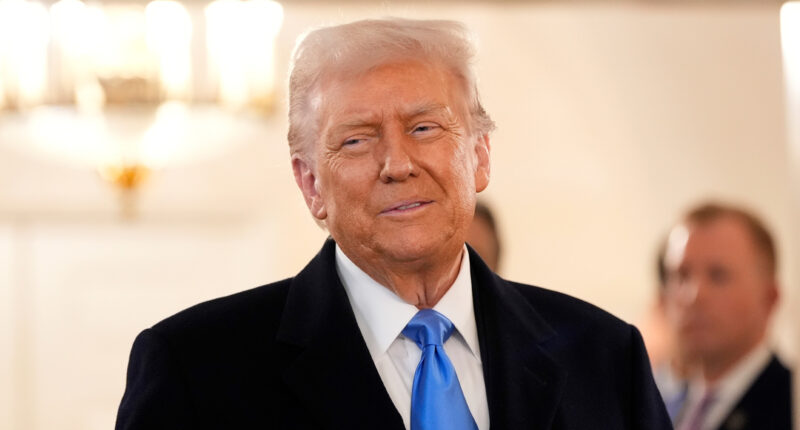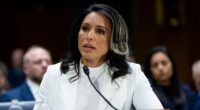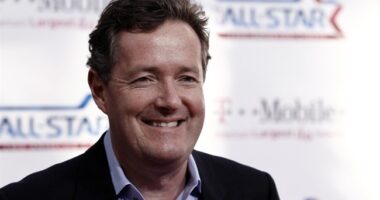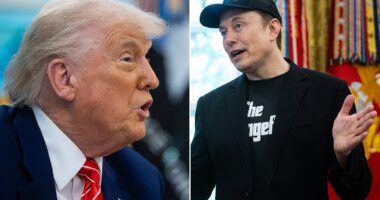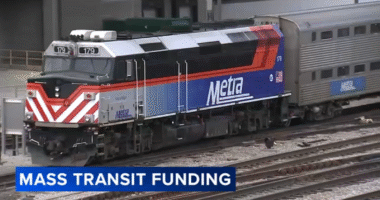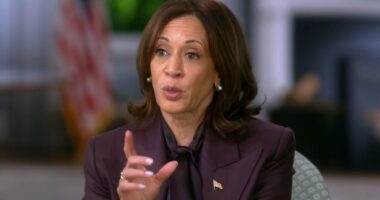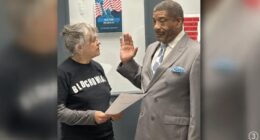President Donald Trump disrupted three years of U.S. policy towards Ukraine by announcing on Wednesday that he and Russian President Vladimir Putin had agreed to initiate talks to end the war, following a significant prisoner exchange.
Trump shared on social media that during a lengthy phone call, he and Putin pledged to collaborate closely to resolve the conflict, with plans to meet in person, potentially in each other’s respective countries.
The level of Ukrainian President Volodymyr Zelenskyy’s participation remained uncertain. According to Ukrainian presidential adviser Dmytro Lytvyn, Trump engaged in a phone conversation with Zelenskyy on Wednesday, describing it as a “positive discussion.”

President Donald Trump arrives to greet Marc Fogel at the White House, Tuesday, Feb. 11, 2025, in Washington.
Photo/Alex Brandon
Vice President JD Vance, Secretary of State Marco Rubio and Trump’s special Russia-Ukraine envoy, retired Gen. Keith Kellogg, will all be in Germany later this week for the annual Munich Security Conference, which Zelenskyy will also attend.
However, in a blow to Ukraine’s aspirations, Defense Secretary Pete Hegseth said earlier Wednesday at NATO headquarters in Brussels that NATO membership was not realistic for Ukraine and said that any security guarantees for the country would have to be born by European countries.
The Biden administration had joined other NATO members since Russia invaded Ukraine in February 2022 in vowing that membership in the alliance was “inevitable.”
And Trump’s announcement appeared to dismantle the Biden-era mantra that Kyiv would be a full participant in any decisions made. “Nothing about Ukraine without Ukraine,” Biden and his top national security aides said repeatedly.
Wednesday’s Trump-Putin call and resulting policy sea change, followed a prisoner swap that resulted in Russia releasing American schoolteacher Marc Fogel, of Pennsylvania, after more than three years of detention in return for convicted Russian criminal Alexander Vinnik.
“We each talked about the strengths of our respective Nations, and the great benefit that we will someday have in working together,” Trump said in a social media post disclosing details about the call. “But first, as we both agreed, we want to stop the millions of deaths taking place in the War with Russia/Ukraine.
Trump said they also “agreed to have our respective teams start negotiations immediately” and would be alerting Zelenskyy to their conversation. He appointed Rubio, CIA director John Ratcliffe, national security advisor Michael Waltz, and his special Mideast envoy Steven Witkoff to lead those talks.
White House officials later declined to clarify whether Ukraine would be a party to the U.S. negotiations with Russia.
But, they described the prisoner swap as evidence of a diplomatic thaw that could advance negotiations to end the fighting in Ukraine.
Fogel, an American history teacher who was deemed wrongfully detained by Russia, was arrested in August 2021 for possession of marijuana and was serving a 14-year prison sentence. He had been left out of previous prisoner swaps with Russia that were negotiated by the Biden administration.
Vinnik – the other person involved, according to two U.S. officials – was arrested in 2017 in Greece at the request of the U.S. on cryptocurrency fraud charges and was later extradited to the United States, where he pleaded guilty last year to conspiracy to commit money laundering.
He is currently in custody in California awaiting transport to return to Russia, the officials said. The Kremlin confirmed that a Russian citizen was freed in the United States in exchange for Fogel but refused to identify him until he arrives in Russia.
Trump had welcomed Fogel at the White House on Tuesday evening after his return to U.S. soil on Witkoff’s personal plane. On Wednesday, Trump declined to say if he spoke with Putin about Fogel and didn’t say what the United States had provided in exchange for Fogel’s release.
Speaking to reporters at the White House on Tuesday, Trump suggested that Fogel’s release could help anchor a peace deal on Ukraine, saying: “We were treated very nicely by Russia, actually. I hope that’s the beginning of a relationship where we can end that war.”
The Kremlin was more cautious, but it also noted that the deal could help strengthen mutual trust.
Copyright © 2025 by The Associated Press. All Rights Reserved.
